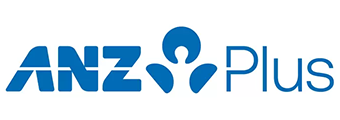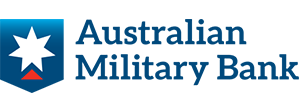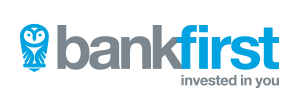Whether you are a 15 year old who has just received their first paycheque from McDonald’s or you’re a seasoned professional with 20 years’ work experience, you are only a couple of taps away from opening up an online savings account to keep your money.
The trade off for an online account is that you might be unable to pay by cheque, or use over the counter facilities. Customers need to make transactions via online banking or over the phone rather than in person. That said, the majority of savings accounts are linked to transaction accounts, so there is not much you are missing out on if you use online banking.
How do I apply for an online savings account?
Provided you already have an internet banking account, it is relatively easy to open an online savings account. Most banks offer savings accounts; all you need to do is log into your account and search for the ‘new accounts’ tab. You usually don’t need to fill out an application if you already have an online transaction account. If you are a newcomer to the bank, you’ll just need to go through the application process, which shouldn’t be too arduous.
CBA for example estimates that its new customer application process takes less than 12 minutes. You’ll just need a couple of forms of identification, an Australian address and to be over 14 years old (this will vary between providers). You will also need to supply your Tax File Number should you wish to avoid paying tax on savings interest at the maximum marginal rate.
Even if you already have a savings account, this could be the perfect time to open a couple of different ones for different saving targets. You might want to have a savings account for your house deposit, say, and then a separate one for your holiday fund.
How to compare online savings accounts
As discussed, most banks offer online accounts, so there is a range of options. You’ll want to do a bit of research to find the account that best suits you. Here are some of the most important things to consider:
Interest rates
Presumably your end goal is to find the savings account that will grow your money the fastest, but it isn’t as simple as just finding the highest interest rate online savings account. Some accounts have conditional rates where you can earn a higher interest rate if you meet certain criteria (minimum monthly deposit, no withdrawals over a time period etc.). Some accounts also have introductory rates, where you can temporarily earn a higher rate as a reward for switching over.
When comparing interest rates, you’ll want to maximise how much interest you will end up earning. It doesn’t hurt to run the numbers over say a two year period, and try to work out which account will leave you with the most money at the end.
Keep in mind that savings account rates are variable, meaning they might look a lot different in two years’ time.
Fees
Another thing to consider when working out which account will make you the most money is any fees associated with the account. Banks might charge account fees if you don’t deposit a certain amount per month, which you should consider when choosing accounts as these extra costs could eat into the gains you are making.
Usability
One of the main benefits of online banking is the ability to access your accounts using your smartphone. You might want to compare how easy it is to do things like transfer money between accounts or pay someone else. Online banking apps can make tasks like this very straightforward, so it’s worth checking out different apps and websites to find something extremely efficient. Many banks now use the New Payments Platform and Osko, allowing near real-time transfers, but not all do.
What are the advantages of an online saving account?
1. Online transactions
You shouldn’t have any need to go into a branch, as everything can be done online or over the phone.
2. Multiple accounts for savings goals
You can open different accounts for different savings goals. For example, you might have an account called ‘Car’, and another called ‘Holiday’. This makes it easy to organise and prioritise the various things you are saving for.
3. Accessibility
As long as your savings account is connected to your transaction account, you can easily transfer funds between accounts.
What are the disadvantages?
1. Online only
While online banking tends to be incredibly convenient, online savings accounts tend to be online exclusively. You might be limited in making deposits or withdrawals in person if your account is not linked to a credit or debit card (although many banks make this easy if your linked transaction account is with the same bank).
Many online banks with the most competitive interest rates have no physical branches or ATMs, which could make it a pain if you want to get money out at zero cost or organise a cheque.
2. Variable interest rates
Online savings accounts normally only have variable interest rates, so rates are subject to market changes. While this could mean your rates go up as well as down, it doesn’t give you the same level of certainty as a fixed rate like with a term deposit.
3. You might not even get a physical debit card
Even if you have a linked transaction account, some banks might not even automatically send out a physical debit card. Instead, they want you to set one up through Apple Pay or Samsung Pay. However, for those who like a physical card, this might be a pain.
Online Savings Accounts
Looking for a high interest savings account with little or no fees? Then an online savings account could be just what you are looking for. Online savings accounts offer higher rates of interest ‘at call’ in return for more restricted account access. Usually no over-the-counter or cheque facilities are available, with account holders encouraged to make internet or telephone transfers. Most online savings accounts will need to be linked to an everyday transaction account, either the same bank or you can link to any existing account you may have with another provider – it’s important to keep an eye out when applying.
Online Savings accounts are also a variable rate which means they can fluctuate up or down, banks will often offer high interest bonus rates on new accounts to entice new customers. Often these inflated rates will only last for a short period of time and will eventually drop back down, when comparing online savings accounts always check the standard rate this is likely to be the interest rate you’ll receive once the bonus offer comes to an end. Another type of bonus rate is sometimes offered if customers set up a regular savings plan, depositing a minimum weekly or monthly amount. If you are able to save money regularly then taking advantage of these bonus interest rates will help you save faster.
With the emergence of Internet in all aspects of life, online savings accounts have gained importance. Banking and other financial solutions can now be performed in a lot smarter manner with online savings accounts. Online savings accounts are meant for salaried professionals, individuals, students and housewives. Depending upon the guidelines laid by the state government and the laws of the land, banks may provide bi-annually interest to online savings accounts.
Online savings accounts are the usual savings accounts which can be accessed online with the help of secured net banking password and user name. Online savings accounts can provide great amount of flexibility to one and all.



















